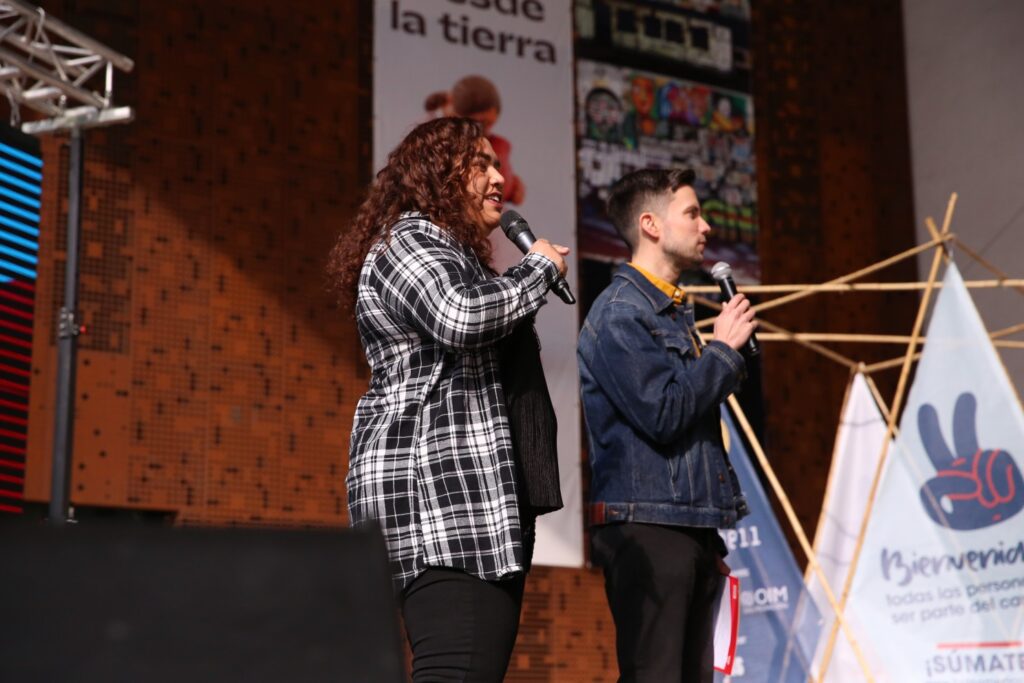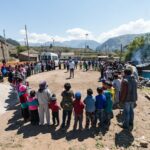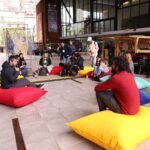- October 14, 2022
- Benjamin Pino
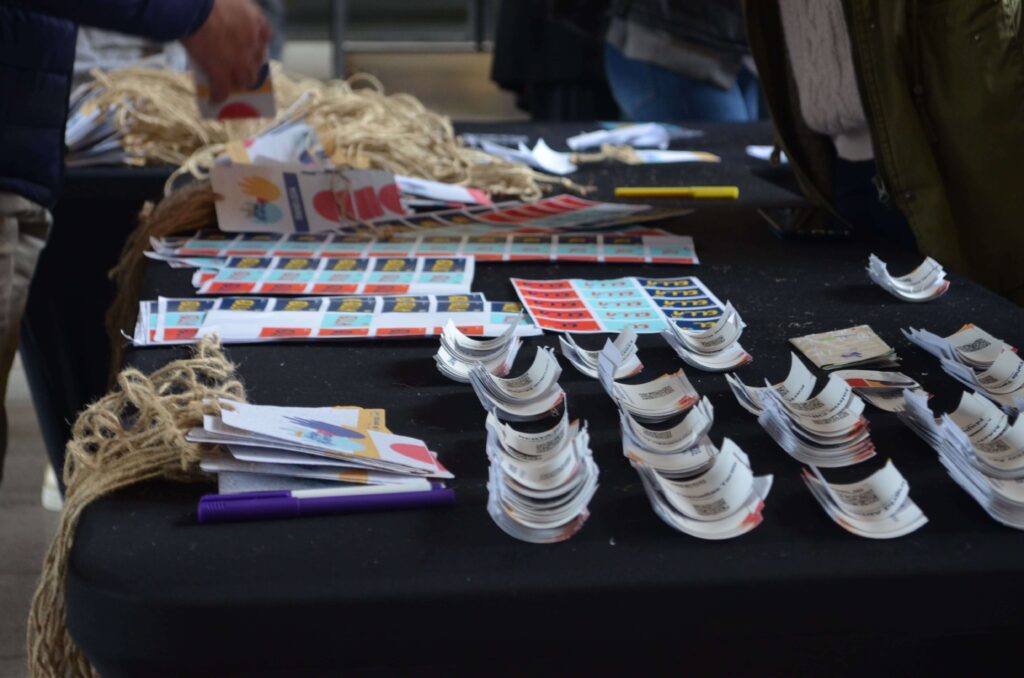
Health, gender, interculturalism and more: Relive the first day of the Hola America Festival
The first day of the Festival was held today Hello America, the first Latin American Meeting on Social Innovation for Migration, which featured some thirty national and international speakers: Maria Teresa Ronderos (El Clip, Colombia), Maria Emilia Tijoux Merino (Chile), Flavia Milano (IDB), Francisca Crispi (COLMED Santiago, Chile), Manu Mireles (Co-founder of Mocha Celis, Venezuela) and Roberto González (PUC de Chile), among others.
The event organized by Ashoka and 2811 at the Gabriela Mistral Center (GAM) was attended by more than 400 people interested in various panels, where speakers presented challenges and reflections on gender, health, technology, education and human trafficking. They also shared experiences and visions from different countries related to one of the most urgent phenomena of the decade.
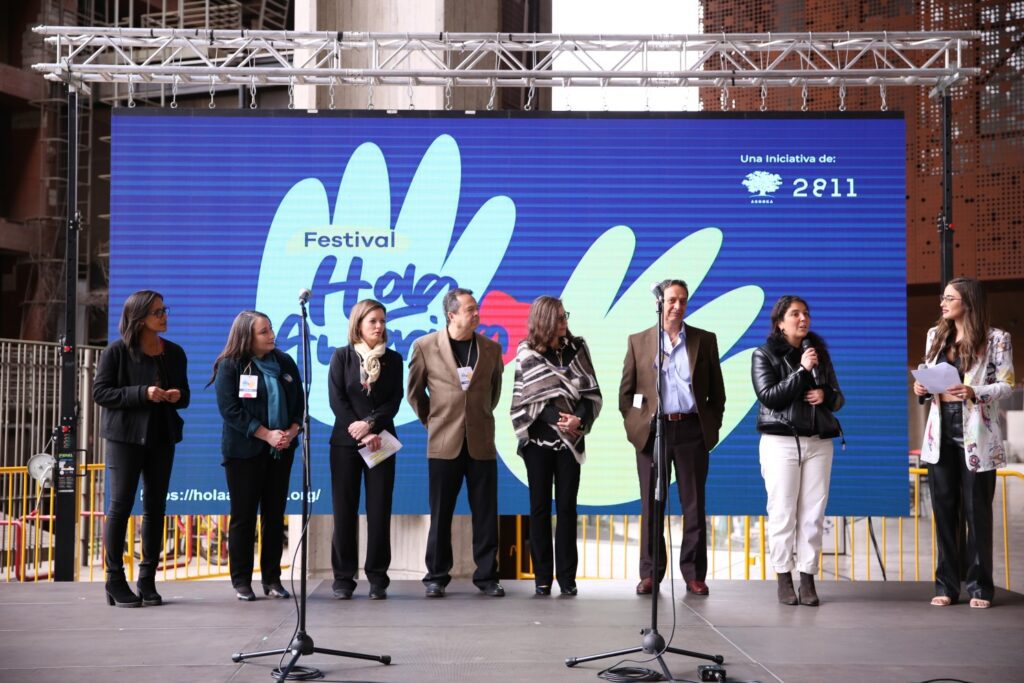
Let’s change the narrative
“Generating alliances is the way to change the negative narratives about migration,” said Tomás Lawrence, a member of the Xenophobia Barometer, in the panel he shared with Patricia Rojas, president of Venezuelan Association in Chile (ASOVEN), María Teresa Ronderos, founder and director of El Clip and Kenny Clewett, director of Hello Europe.
“It is necessary to make visible that which cannot be seen and to understand the ecosystem in which it moves. This is key to work on migration. When you know the story, there is no fear or pity, these are two great mobilizers of phobia,” said the prominent Colombian journalist.
In the same line was the panel on inclusion and diversity, moderated by EzequielMonis, member of Natura Chile, accompanied by Clara Popeo, from Inclúyeme.com, José Manuel Simons Domínguez, from Migración Diversa, Manu Mireles from Mocha Celis, and Jean-Baptiste Marckenson, from Fundación InterpretaLab.
“It is necessary to change the narrative because the main challenge we face is stigmatization: from biological determinism to migrant stereotyping. It is important that we speak in the first person and tell all the stories about the criminalization of our realities. We have to stop being silent, that is a way of generating violence,” said Mireles.
The vision of women was important on this day: Gabriela Hilliger, Head of Legal Advocacy SJM Chile, Micaela Garrido, General Project Coordinator at SJM Chile, Micaela Garrido, General Project Coordinator at SJM Chile, Micaela Garrido, General Project Coordinator at SJM Chile. Fundación Mediapila; María Irene Urdaneta, Director of Migrant Woman Entrepeneur; Maricarmen Lira Monardes, Gender Directorate of the National Migration Service and Soledad Loyola, Researcher at the Center for Migration Studies of the University of Santiago de Chile, reflected on the importance of considering gender issues in migration.
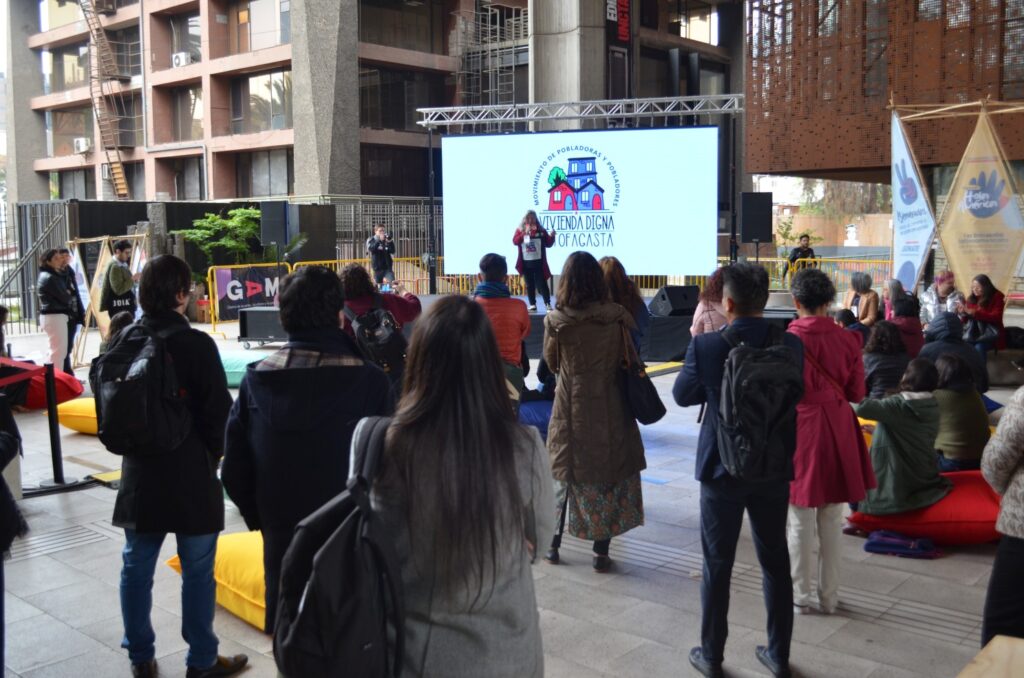
Public policies without borders
In the panel Health as a reflection of migrants’ living conditions addressed post-pandemic learning on issues of dignity. The participants were Báltica Cabieses, ICIM academic, Francisca Crispi, president of COLMED Santiago, Emmanuel Mompoint, member of the Association of Haitian Doctors in Chile, Daniel Molin, from the Subsecretaría de Redes Asistenciales of the Chilean Ministry of Health and Social Welfare, and Daniel Molin, from the Chilean Ministry of Health and Social Welfare. Ministry of Health Chile and Catalina Bosch, part of Coordinadora Nacional de Migrantes.
Bosch spoke about guaranteed access to primary health care and how the countries of the region are looking at the case of Chile with attention. However, Mompoint noted the lack of public policies prioritizing specific groups. “It is important for the health system to recognize, regardless of the country of origin, its beneficiary population,” Cabieses added.
Interculturality was a central theme of the panel. The Role of Higher Education in Social Change It was related to communities migrating from other countries or continents, native peoples and the masses of Chileans moving within the same territory. Roberto Gonzalez, director of the intercultural program of the Pontificia Universidad Católica de Chile, highlighted the richness of the exchange between students, their diversity and the academy.
Viviana Caminos, President of the Argentinean Stop Trafficking and Trafficking Network (RATT)In his speech at the Hola America Festival for the panel on human trafficking, he referred to the difference in the law for minors and adults who have been victims of this problem and of contemporary slavery.
Caminos also commented on the shortcomings and limits of public policies: “There are 40 million trafficked persons, 10 million more than at the beginning of the pandemic. This situation of impoverishment, lack of work and the possibility of war made people more vulnerable.” Regarding the local reality, the academic María Emilia Tijoux emphasized that Chile “it is a country that has a discourse of homogeneity, but practices of inequality, differences and racism”.
Rafael Rincón, of the Social Gastronomy Foundation and Ashoka Fellow, stated that “the mission is to make food a right for everyone”. The specialist explained that his projects focus on marginalized communities, such as migrants, children and women.
In Ñam, for example, inclusive spaces were generated that encouraged professional training in gastronomy regardless of whether the person was or not documented. “The mission is that food and health should be part of children’s education, especially because Chile is a leader in obesity. The important thing is to ask ourselves why, how and where we eat,” added Rincón.
In the central square of the GAM, musical numbers, social innovators and various migrant agents of change told their stories of inspiration. The first day of the Hola America Festival closed with the humor of Vaneska Viloria (Vanesking) and Alejandro Velasco (un Wey Weón).
